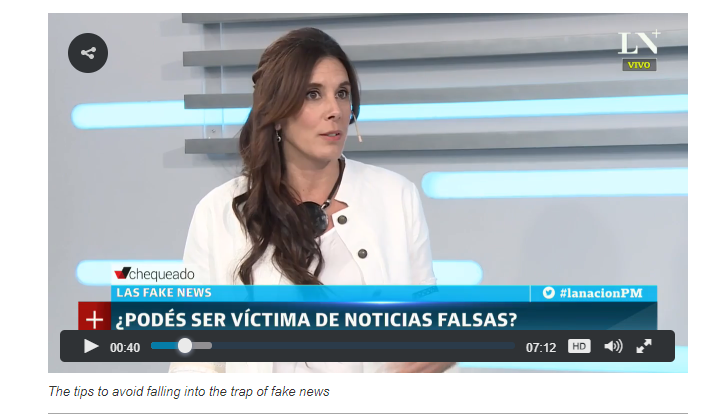The Week in Fact-Checking is a newsletter about fact-checking and accountability journalism, from Poynter's International Fact-Checking Network & the American Press Institute's Accountability Project
Fighting fakery: Whose job is it?
No one is better situated to fight digital misinformation than professional journalists who work with social media every day. But that's not happening in many news organizations today. Newsroom social media teams are due for a redesign — one that would include more fact-checking, debunking and accountability, according to a new American Press Institute report. Read the Poynter interview here.
Quote of the week
"Truth hasn't been obliterated, much as they would like to try, politically. Truth is as important as it ever was. But it's important to remember truth is not something that's just handed over to us. It's something that is investigated, it's pursued, it's sought after.” — Filmmaker Errol Morris in the Hollywood Reporter
The European Union needs you
The EU has a new strategy to stop the spread of fake news: Ask for help. The commission is putting together a group of experts who will suggest a plan of attack by next spring. Ideas are due by February.
Tips for classrooms and newsrooms
Laura Zommer of Chequeado talked with La Nacion about quick ways to spot sketchy content on websites. … Channel One News has a "fake news" quiz and a list of resources for anyone trying to teach and learn about fact-checking.

How can we keep misinformation from ruining elections?
Block social media, says the election commission of Somaliland. The group asked phone companies to block access to about a dozen platforms in advance of this week's elections, including Facebook, Twitter, WhatsApp, Snapchat, Instagram and LinkedIn.
Add these to your reading list
The “Checkpoints” chapter in John McPhee’s new book will be “assigned and reassigned by grateful writing teachers” for years to come. …Poet and critic Kevin Young's book with the exhaustive title "Bunk: The Rise of Hoaxes, Humbug, Plagiarists, Phonies, Post-Facts, and Fake News" is out this week.
Fact-checking lessons for law enforcement
Can toddlers overdose on fentanyl by touching the handles of a shopping cart contaminated by the drug? No, but at least one police department sent a warning to citizens before someone explained that it's "fake news."
Tracking a viral rumor — and what to do next time
It should have been an easy rumor to debunk. But instead the "fake news" that U.S. Education Secretary Betsy DeVos was about to quit her post swept social media, and the few attempts to quash the rumor were rather unsuccessful. Education writer Alexander Russo breaks it down.
No, there's no reason to think DeVos is planning to resign, contrary to viral news stories https://t.co/dJ0fV2GIFS #stopbsl #endbreedspecificlegislation #dogrescue #dog pic.twitter.com/CczD8gn8as
— Fido (@FidoK9Awareness) November 13, 2017
Facebook fact-checking fail?
The Guardian interviewed fact-checkers working with Facebook to debunk fake news, and the news was not good. "Largely failed" and "exploited their labor" were part of the narrative. "Just isn't working," says Mashable. Facebook promised "another update on our progress" to a Fortune writer. (Disclosure: The International Fact-Checkers Network verifies Facebook's third-party fact-checkers.)
Fact-checking: Antidote to poisoned elections
The data team of the Daily Nation in Kenya used numbers to fight misinformation about election issues. Their effort will "begin to help the voter focus more on issues than personalities," said the editor.
9 quick fact-checking links
(1) Ukraine vs. U.S. fact-checking: What's the difference? (2) The International Fact-Checking Network has launched the "Check It" video series on best practices in fact-checking. (3) It's fake news that President Trump watches fake news. (4) PolitFact is coming to the State Journal-Register. (5) This Fox News fact-check "infuriated" viewers. (6) Facticity is our new favorite word. (7) For those of you who complain about gaps in government data, here's a lesson from Argentina. (8) The Trust Project is partnering with news outlets and platforms like Google and Facebook to label stories with "trust indicators." (9) Please welcome Zoe — the world's newest future fact-checker — who arrived this week to the delight of new parents Alexios and Silvia!
Until next week,
Jane, Daniel, and Alexios (in spirit)
Looking for previous editions of this newsletter? You can find them here.






